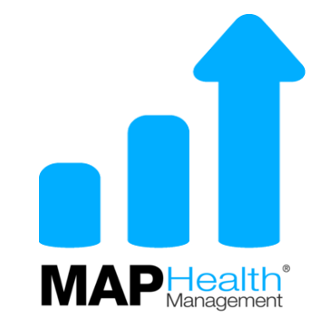The Arrival of Behavioral Telehealth: Altering the Course of Addiction Treatment
January 11, 2016 Jacob Levenson

However, as we enter this new year, the behavioral health field finds itself looking forward more than ever to welcome the advancements and arrival of the first generation of innovative technologies.
According to a 2015 Pew Research Center report, 92% of U.S. adults own a cellular phone (68% of those are smart phones), 73% of American households have at least one computer and 45% of Americans have a tablet computer.
The Pew Research Center also reports that the cell phone is the most quickly adopted consumer technology in the history of the world.
Why is this Important?
At no time in our history have American's been more open to technology and more accessible because of it.
Telehealth technology encompasses the use of electronic information and telecommunications technologies to support long-distance clinical healthcare, patient and professional health-related education, public health and health administration.
Technologies include videoconferencing, the internet, store-and-forward imaging, streaming media and terrestrial and wireless communications. As we enter 2016, behavioral telehealth technology has arrived and has begun to influence the field including the provision of addiction treatment.
Fewer than 20% of the approximate 22 million Americans who need treatment for addiction actually receive treatment. With the rising numbers of people addicted to opioids and the annual increase of deaths from addiction, the situation will only worsen and the underserved population will only intensify until we do something differently.
Filling the massive gap of Americans who need treatment is an enormous task. There is not the infrastructure to treat so many and to do so in an inpatient setting would cost close to half a trillion dollars.
The strategy to successfully treating chronic diseases is to place a heavier emphasis on maintenance which will reduce the volume of expensive treatment encounters. Telehealth technology is the fitting, resolute antidote.
The field conclusively agrees that effective treatment for addiction is demonstrated by long-term recovery which requires a time and labor intensive effort measuring bio-markers and prescribing medication is not an option.
It is also understood that the period following intense treatment is a particularly vulnerable time for the newly sober addict as he/she often returns to the geographic area where they were active in their addiction.
In this case, familiarity is not always favorable. This transition from treatment to sustained recovery introduces many challenges and the addict is at high risk to return to a lifestyle of addiction.
Data shows that the provision of extended professional recovery support during the tenuous time following treatment dramatically increases the ability to maintain long-term recovery a scenario impeccably primed for telehealth.
Fittingly, the increased rates of recovery result in a decreased demand for a return to a treatment facility which equates to significant cost savings for both patient and payer. The provision of extended recovery support via telemedicine technology will greatly enhance the success rates of addiction treatment while substantially lowering the costs.
The economics and infrastructure of addiction treatment are well suited for the cost-effectiveness and convenience of telehealth technology.
An acute-only treatment model cannot effectively treat a chronic disease. However, with its characteristics of unlimited scalability, data-driven precision medicine and resource efficiencies, telehealth has the ability for treatment providers, counselors and healthcare professionals to extend their reach and increase their effectiveness.
For example, by extending remote recovery support services to individuals striving to maintain post-treatment sobriety, treatment providers help to prevent a return to active addiction and a potential return trip to residential treatment.
The result is a trifecta achievement: payers operate with optimal financial efficiency, providers are able to empirically demonstrate their rates of success which breeds future opportunities for their facilities and patients increase their likelihood of sustaining long-term recovery which is what our nation so desperately craves. The only long-term, sustainable healthcare model is one in which the needs of the patient, provider and payer are all effectively met.
Unlike the treatment for most chronic illnesses, it is common practice for patients seeking treatment for addiction to travel outside of their geographic area. After completing treatment, many patients return to their home cities and states and even in best-case scenarios, treatment providers have struggled to maintain contact with their alumni.
There is a reason no one likes to discuss readmission rates they are egregiously high. To the field of addiction treatment, telehealth provides the opportunity for both payer and provider to pivot toward a more strategically structured emphasis on disease maintenance and management in order to improve financial and clinical outcomes.
The patient, by way of multiple technological options, maintains the important connection to their newly formed support system. Treatment providers who embrace technology will benefit from payers who have begun to differentiate data driven results from educated guesses readmission rates are expected to decrease which will send a strong message to the millions of underserved individuals.
What is the Advantage of Adopting Telehealth Services?
Facilities can demonstrate empirical data and cannot afford to be left behind.
With the arrival of the first generation of behavioral telehealth, we can expect to see evolving treatment standards. Health insurance payers are just beginning to define pay-for-performance success measures and are motivated to operate with fiscal efficiencies.
Reimbursements for treatment backed by empirical data makes sense (and cents) for everyone. Telehealth allows treatment providers to gather data on their alumni while offering vital recovery support which segues to the ability to demonstrate treatment outcomes (which we've seen in the Medicare and Medicaid models for decades).
By utilizing telemedicine in our increasingly technologically savvy society, providers will be able to maintain contact and provide on-going recovery support to their patients and payers will pay.
What will Telehealth Look Like?
In a word: success.
The outcome data derived from post-treatment patient encounters will illuminate treatment modalities that are clinically successful and those that are not, and providers will have the advantage of recalculating and adjusting their services accordingly.
The vast majority of patients will receive extended supportive care in order to successfully maintain their chronic disease. And, within a few years, the majority of addiction treatment providers will have telehealth divisions associated with their facilities to serve as solvent revenue centers which will be an essential part of their brand identity.
Last year, we witnessed a significant introduction of capital and resources into the healthcare IT space. Companies such as Google Ventures and Salesforce have set their sights on data-driven healthcare technology and the field of behavioral health has joined in the forward-thinking movement.
While maintaining its foundations of delving into histories, traumas and life experiences in order to successfully diagnose and treat addiction, the field of behavioral health more than ever is looking ahead. Behavioral telehealth is altering the course of addiction treatment. The future is now and it holds infinite promise.

Jacob Levenson founded Austin-based MAP Health Management,LLC in 2011 and has served as Chief Executive Officer since its inception. Levenson passionately architects and deploys data-based solutions and healthcare services that empower patients by mitigating potential relapse, increasing predictability for insurance payers and overall outcomes for treatment providers.








